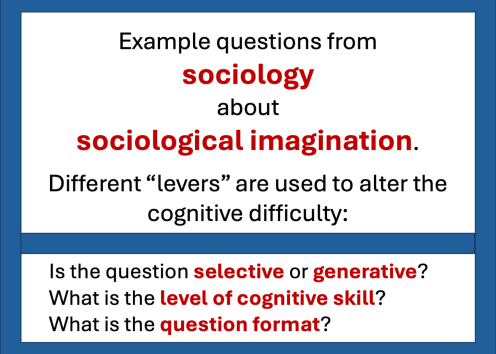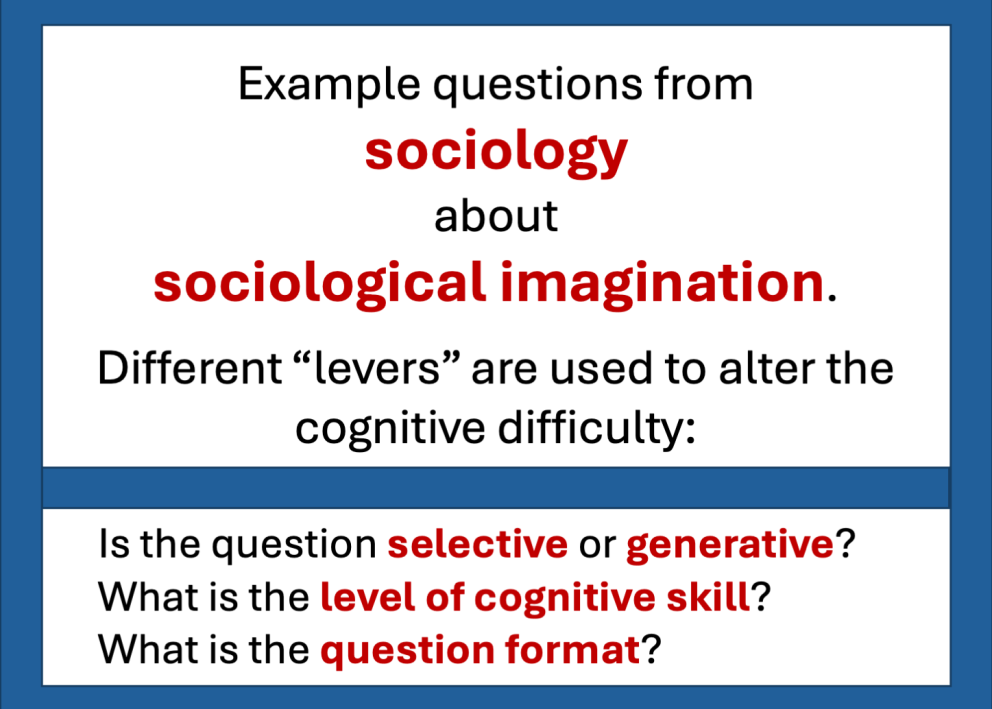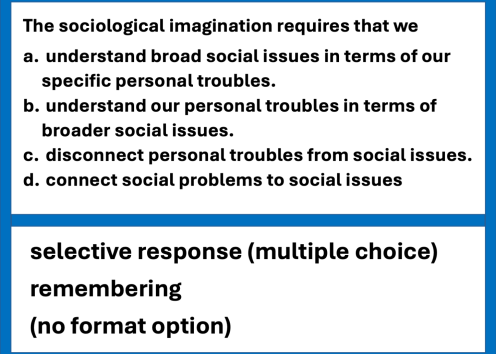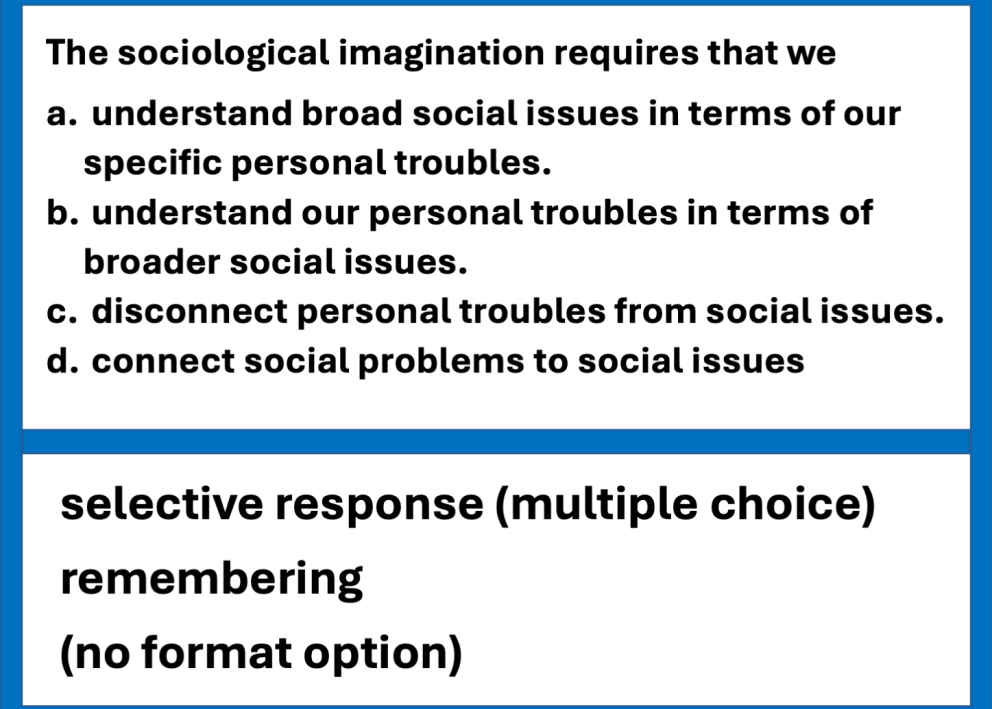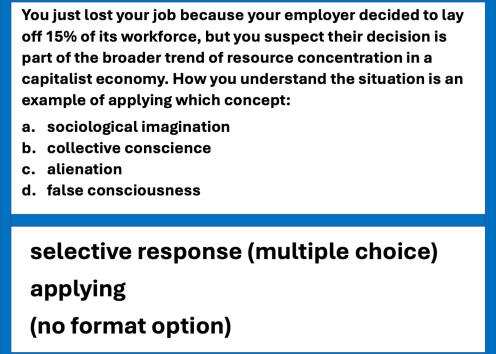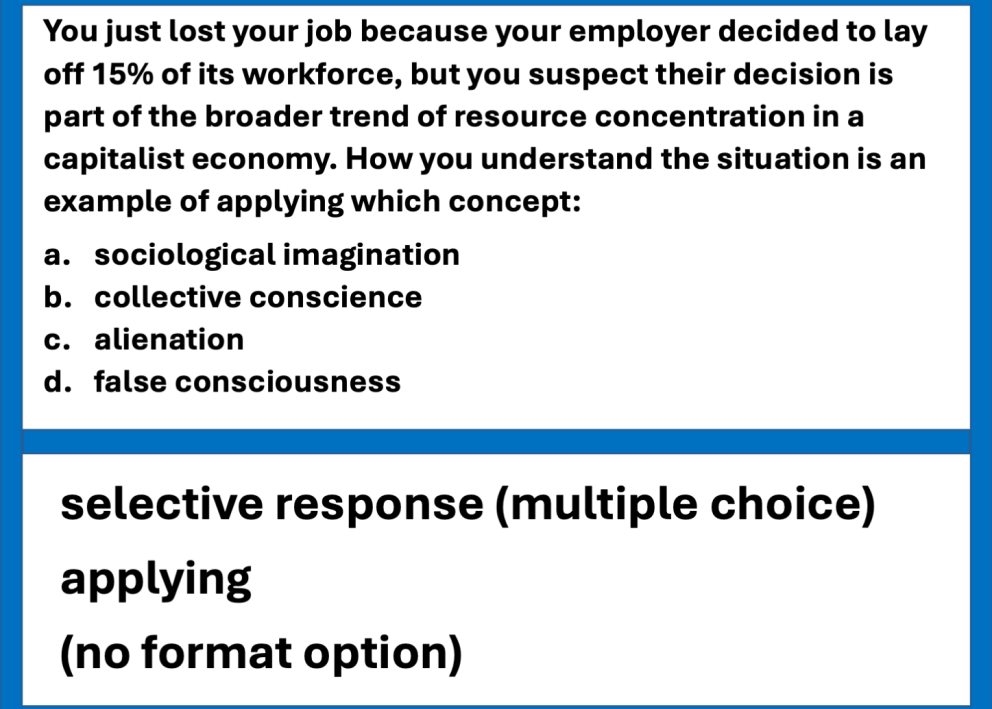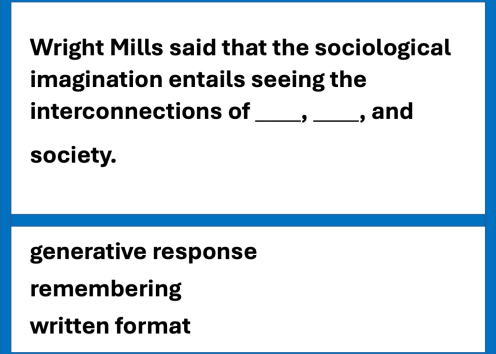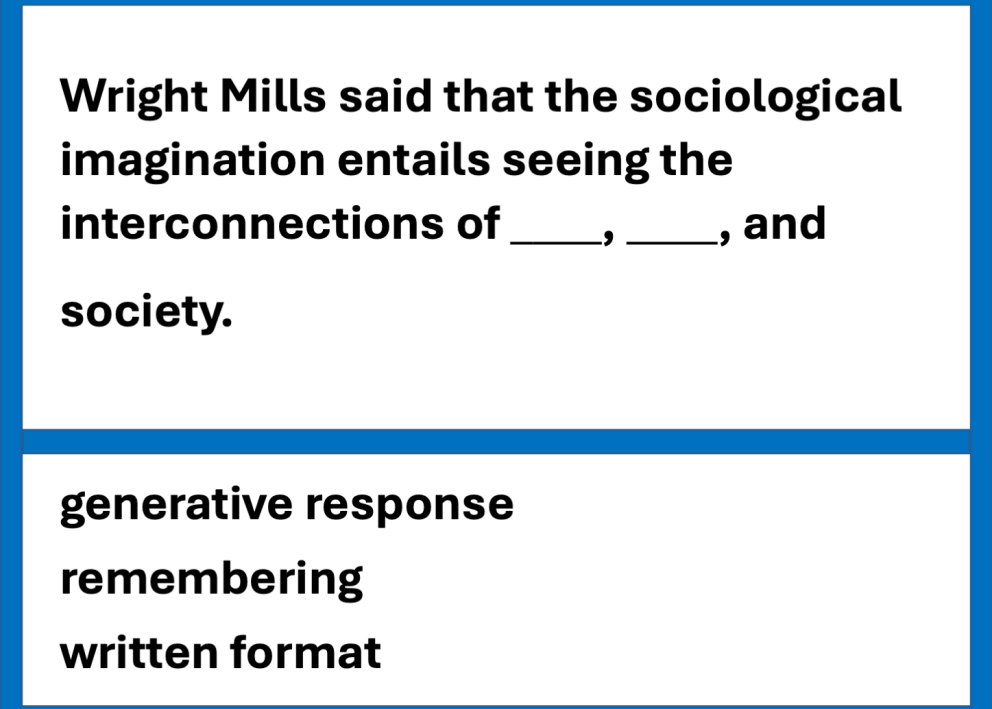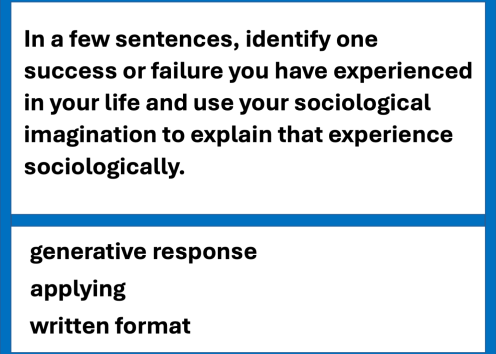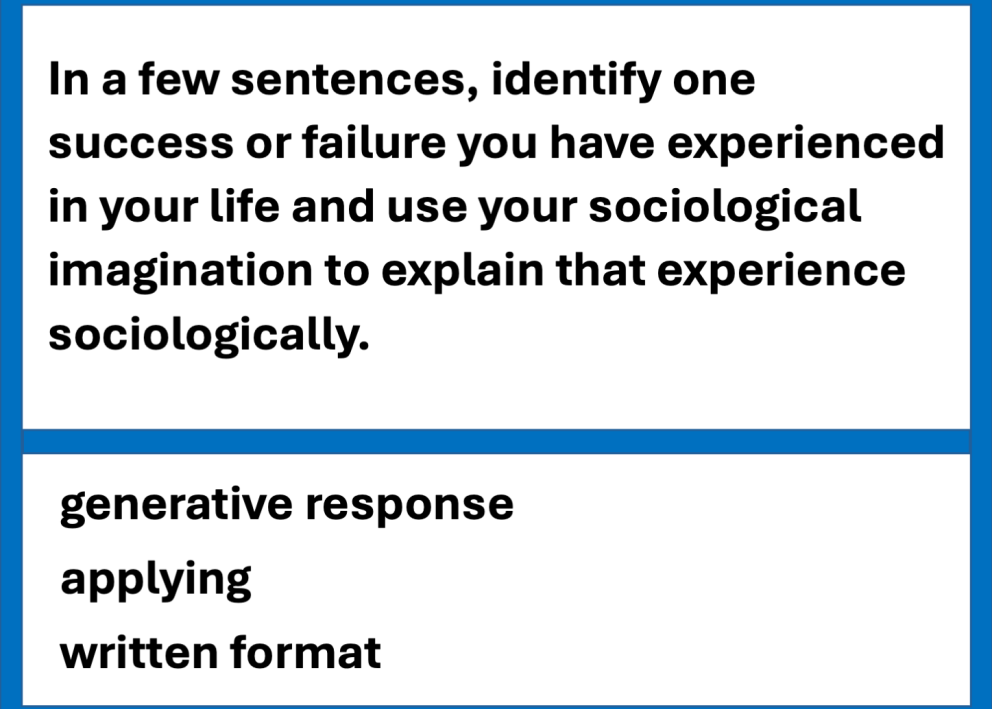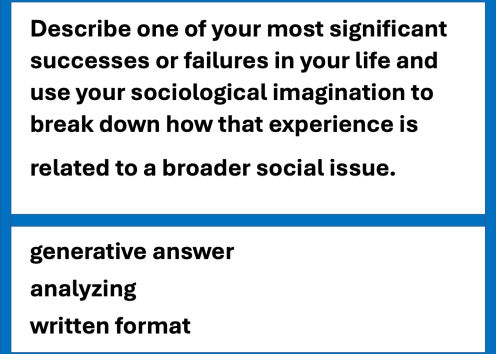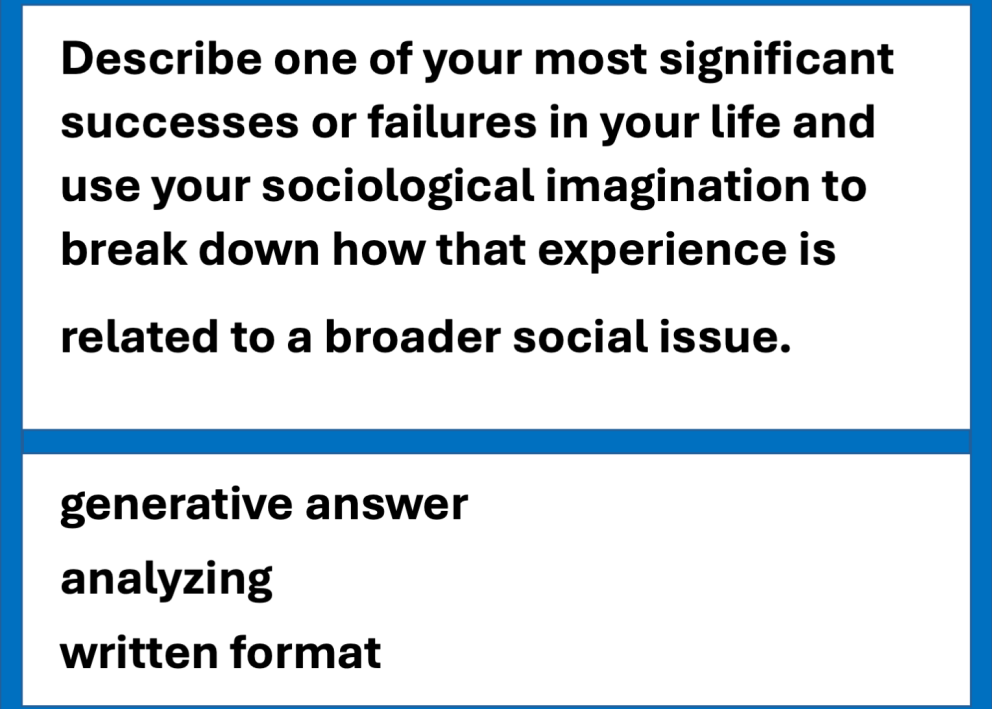Sociology Examples
This is a collection of example exam questions in sociology about sociological imagination. Each example is at a different level of difficulty based on levers at the instructor’s disposal: generative vs. selective response; cognitive effort as reflected in Bloom's taxonomy; and response format, such as written, oral, visual, etc. Special thanks to Kevin McCannon for the contributions.
